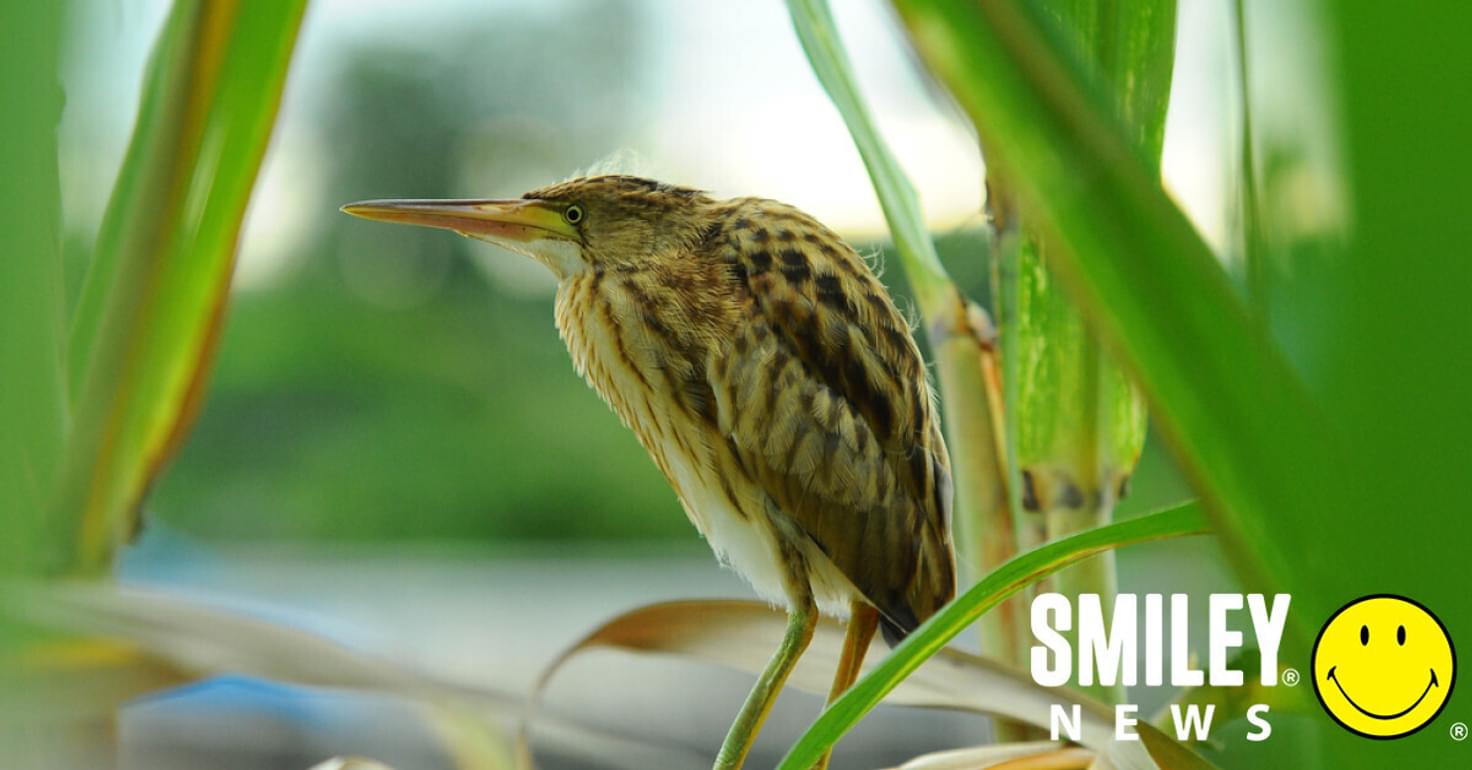
Words by Smiley Team
Walking through a wetland at dawn, the birdsong reaches philharmonic levels in its variety. Of course, you’ll hear tweets, chirps, hoots and coos. What you might not expect, is the booming cry of a bittern.
That we can hear this distinctive sound at all in Britain, is a great cause of celebration. In the 1870s bitterns went extinct, suffering under the heavy pressures of overhunting and drainage of wetland habitats.
But after returning to the country in the early 20th century, Britain's loudest bird species has doubled in numbers, reaching record levels over the last two years.
“I want to say a huge thank you to all the volunteers, conservation site staff, and landowners who monitored sites in 2020 and 2021 during the Covid-19 pandemic,” said Simon Wotton, the RSPB’s senior conservation scientist.
[Discover more positive news about initiatives protecting and restoring life on land]
“Without them and everyone who uploaded their recordings to online sources we would have lost invaluable information about these endangered and magnificent birds," he added.
Bitterns are members of the heron family, are well-camouflaged and shy, making them incredibly difficult to spot. But dedicated birdwatchers have followed their rise from only 11 males across the UK in the 1990s to 228 counted in 2021.
A large part of this rise is down to the rewetting of wetlands drained in the 19th and 20th centuries. This restoration not only supports bitterns and other wetland inhabitants but also helps tackle the climate crisis. This type of land helps prevent flooding and acts as a carbon sponge, absorbing even more carbon than forests.
VOLUNTEER: To find out what you can do to help birds in the UK, follow this advice from the RSPB.
DONATE: To help the conservationists carry out more work restoring and protecting wildlife habitats, donate to the RSPB.